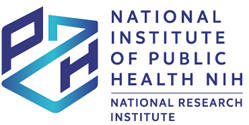Background. Nutri-score is a useful and comprehensible system of extended nutrition labeling of food, which is intended to provide the consumer with simple guidance in choosing food products, taking into account the consumer’s healthy diet. In several countries, in addition to the mandatory nutritional value of food indicated on the product packaging, the use of the so-called food traffic lights, which, based on a simple graphic display, make it easier for consumers to concentrate on choosing healthier food options.
Objective. The aim of the work was to evaluate the nutritional composition of gluten-free food products based on the nutritional data indicated on the packaging of these products in order to find out how useful the use of Front-of-Pack labeling (FOPL) Nutri-score will be in distinguishing the nutritional value of products.
Material and Methods. We analyzed 206 randomly selected gluten-free food products obtained from commercial retail chains (semi-finished products, other bakery products, biscuits, flour mixtures, porridges, pasta, muesli, snacks, confectionery, etc.) intended for celiacs. Based on the obtained data, we evaluated the composition of the products using a modified algorithm for calculating the Nutri-score.
Results. We found that gluten-free products are a very rich source of energy, especially fats, carbohydrates and sugars, while the proportion of fiber and protein is very low. More than one third of the products had a nutritional score of category A or B, which are healthier variants, but over 40% of the analyzed products already fell into categories D or E. We found the lowest average energy value in the case of products classified in category B, the lowest average fat content and saturated fatty acids were found in products labeled A, the highest sugar content was found in products labeled D and E, the highest average protein content in products labeled A. The highest average salt content was found in products labeled C, fiber in products labeled B and A.
Conclusions. Nutritional profiling can significantly contribute to several health-beneficial decisions, especially when choosing and buying healthier food options, including gluten-free foods.
You can change cookies settings in your browser. Restricted use of cookies in the browser configuration may affect some functionalities of the website.



